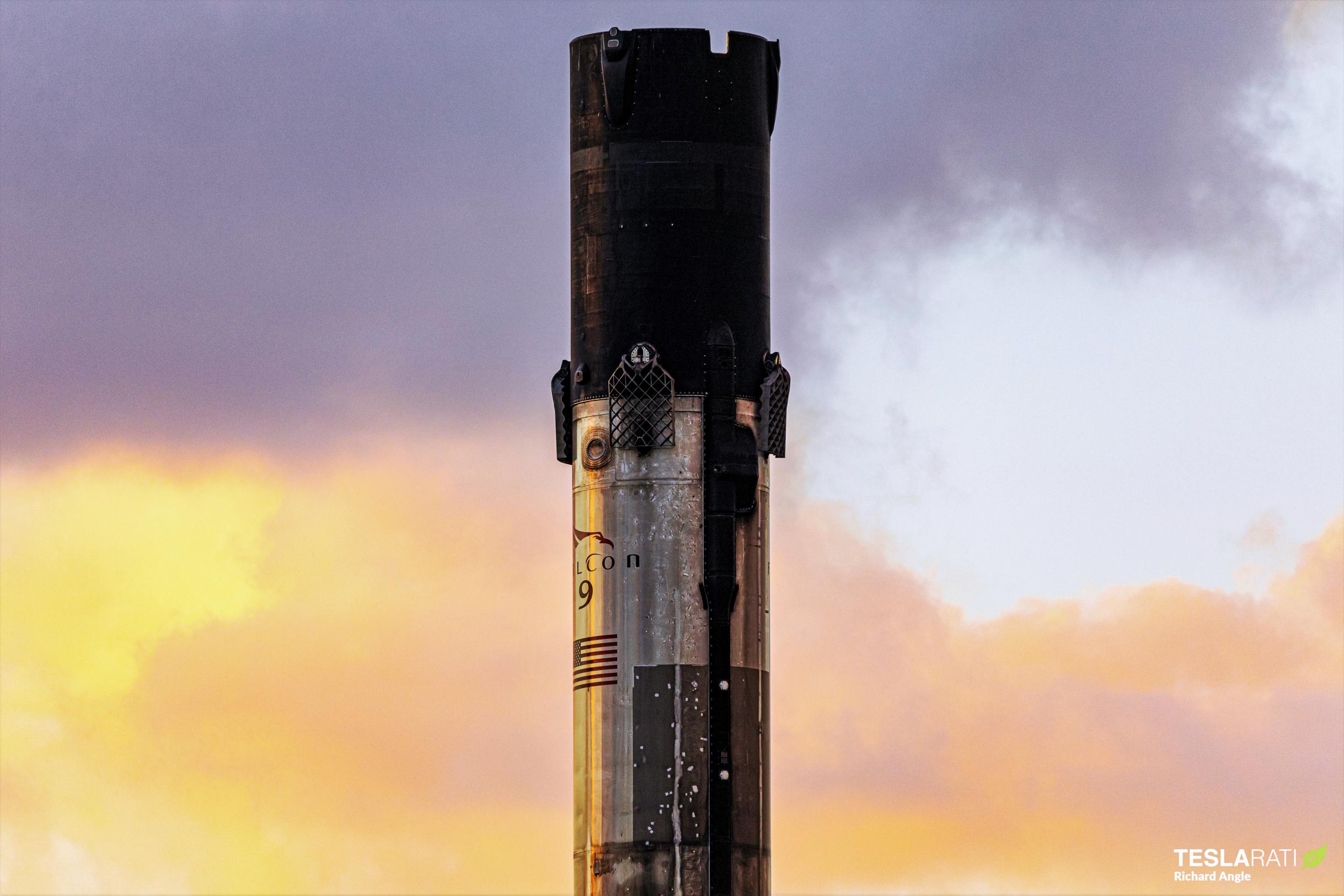
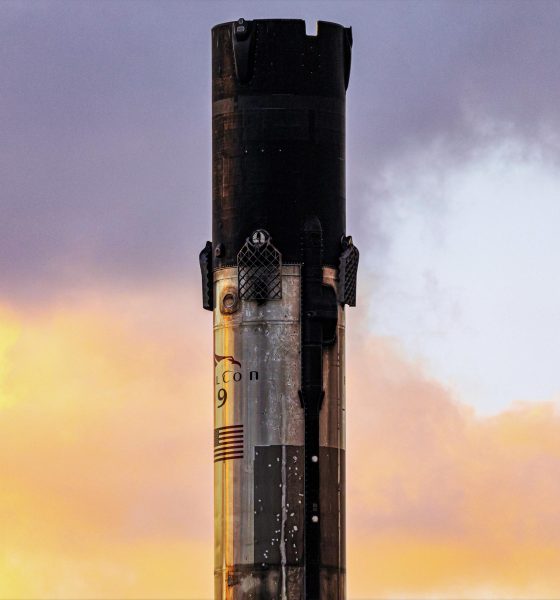
News
SpaceX’s next Starlink satellite launch slips closer to Crew Dragon astronaut debut
SpaceX’s next Starlink satellite launch has slipped about a week and a half into mid-May, placing it just nine days (or less) prior to the company’s inaugural NASA astronaut mission.
Known as Crew Dragon’s second Demonstration Mission (Demo-2), SpaceX’s first astronaut launch is officially scheduled no earlier than May 27th and is with little doubt the most important mission in the company’s history. Simultaneously, however, SpaceX is working to rapidly launch thousands of Starlink satellites in a bid to deliver high-quality internet service to tens – or even hundreds – of millions of people. The company has already launched an incredibly 420 operational Starlink satellites but that’s just a drop in the bucket compared to the ~4400, ~12,000, or even ~40,000+ the company will ultimately need to match its ambitions.
Along those lines, SpaceX’s eight Starlink launch (the seventh flight of v1.0 satellites) is now scheduled to lift off no earlier than (NET) 3:09 am EDT (07:09 UTC) on May 18th – a delay of 11 days from a previous May 7th target. The cause of that delay is unclear and will likely remain so but it does mean that 60 new Starlink satellites could head to orbit just nine days before Crew Dragon attempts to ferry astronauts to the International Space Station (ISS) for the first time ever.
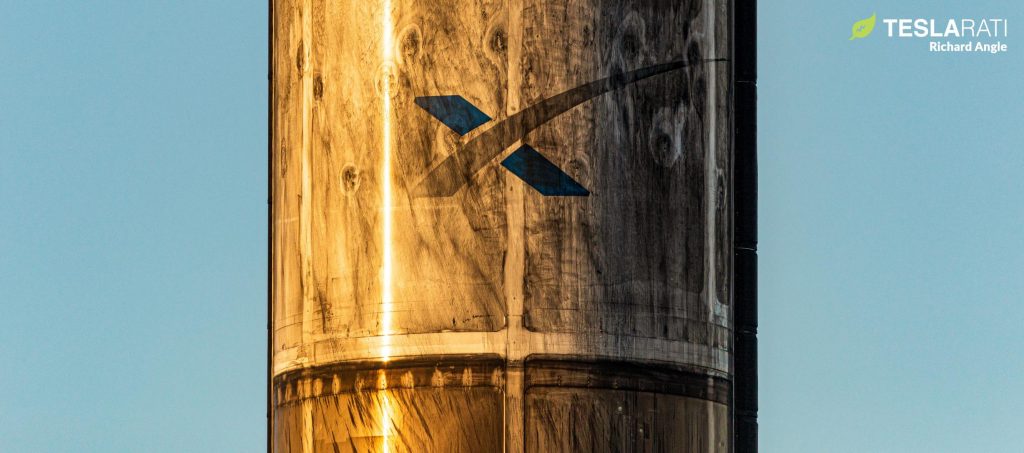
The fact that SpaceX is still pursuing a Starlink launch a little over a week before the most important mission in the company’s history is not exactly surprising given that it’s performed several launches just days apart over the years. Still, given how much of a priority Demo-2 must be for both SpaceX and NASA, the closeness of Starlink-7 heavily implies that SpaceX has a more or less separate team capable of independently performing a Starlink launch.
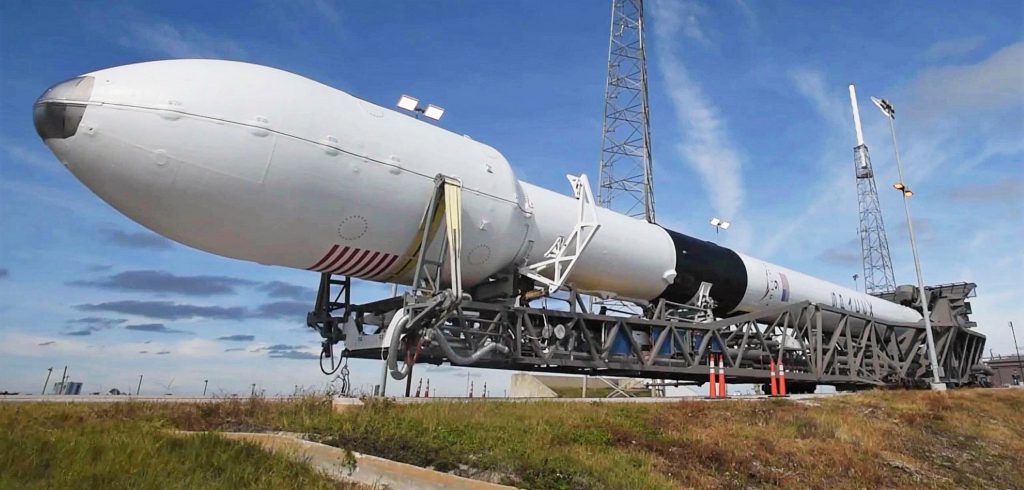
SpaceX certainly has two orbital Florida launch pads at Kennedy Space Center (Pad 39A) and Cape Canaveral Air Force Station (CCAFS; LC-40). At least for now, SpaceX only has one drone ship – needed to recover boosters after both Starlink-7 and Demo-2 – but that could change in the near future. Now, with Starlink-7’s May 18th launch date firming up, it’s also safe to say that SpaceX has a workforce large enough to near-simultaneously support major a NASA astronaut mission and an uncrewed satellite launch.
Beyond its adjacency to Crew Dragon’s astronaut launch debut, Starlink-7 is also expected to feature a significant hardware milestone, (hopefully) marking the second time a Falcon 9 booster successfully completes five orbital-class launches and landings. Next Spaceflight recently confirmed that Falcon 9 booster B1049 has been assigned to support Starlink-7 approximately four and a half months after it completed its last (fourth) launch, Starlink-2.
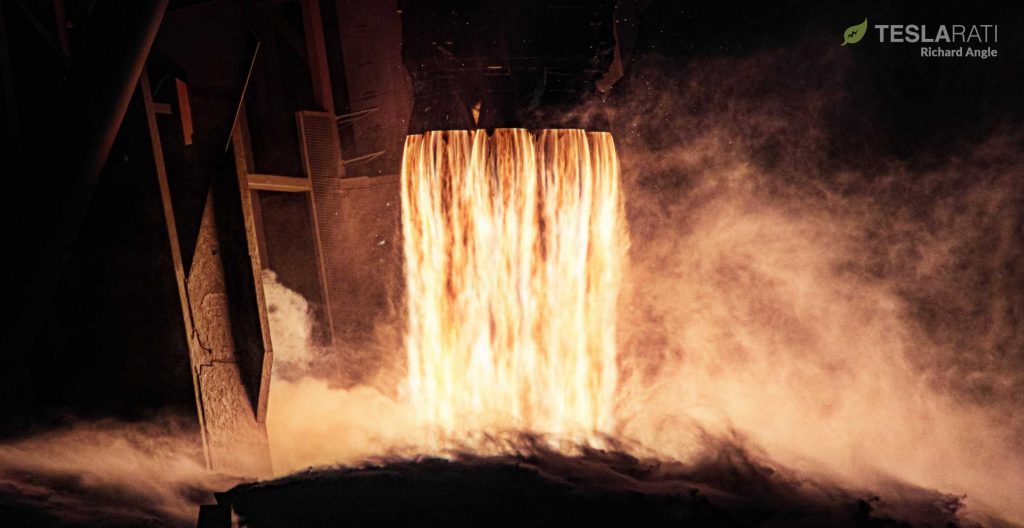
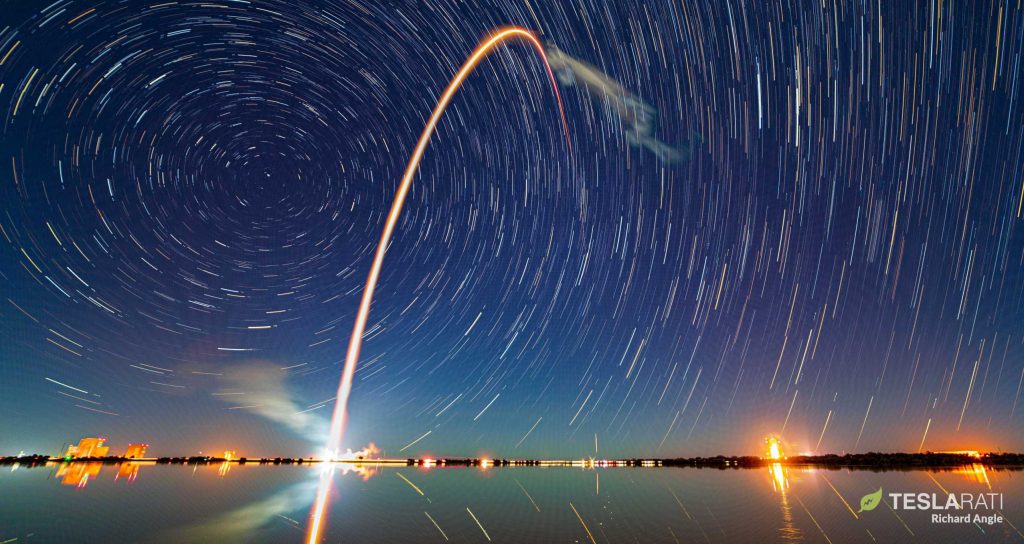
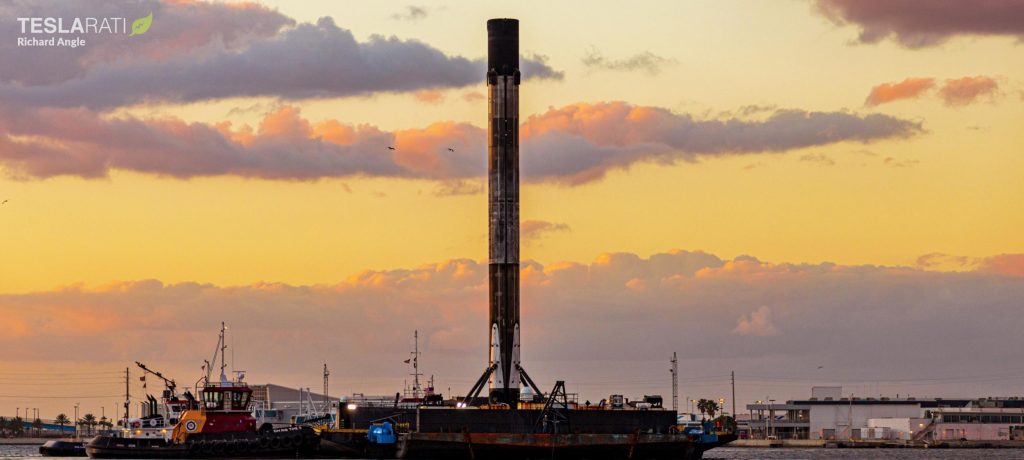
Lost during its fifth launch after suffering an in-flight engine failure caused by an improper refurbishment procedure, Falcon 9 booster B1048 is currently the first and only SpaceX rocket to successfully complete five orbital-class launches. After the loss of B1048, B1049 became SpaceX’s new ‘life-leader’ for Falcon reusability. That refers to the fact that – if successfully recovered – B1049’s condition will help inform all future recovery and refurbishment efforts, while also ensuring that the booster will be the first to attempt all future nth reuse milestones.
If B1049 survives Starlink-7 and safely returns to shore, that future will (at least partially) be assured. For now, we’ll have to wait a little less than two weeks to find out if it does.

Elon Musk
SpaceX secures FAA approval for 44 annual Starship launches in Florida
The FAA’s environmental review covers up to 44 launches annually, along with 44 Super Heavy booster landings and 44 upper-stage landings.
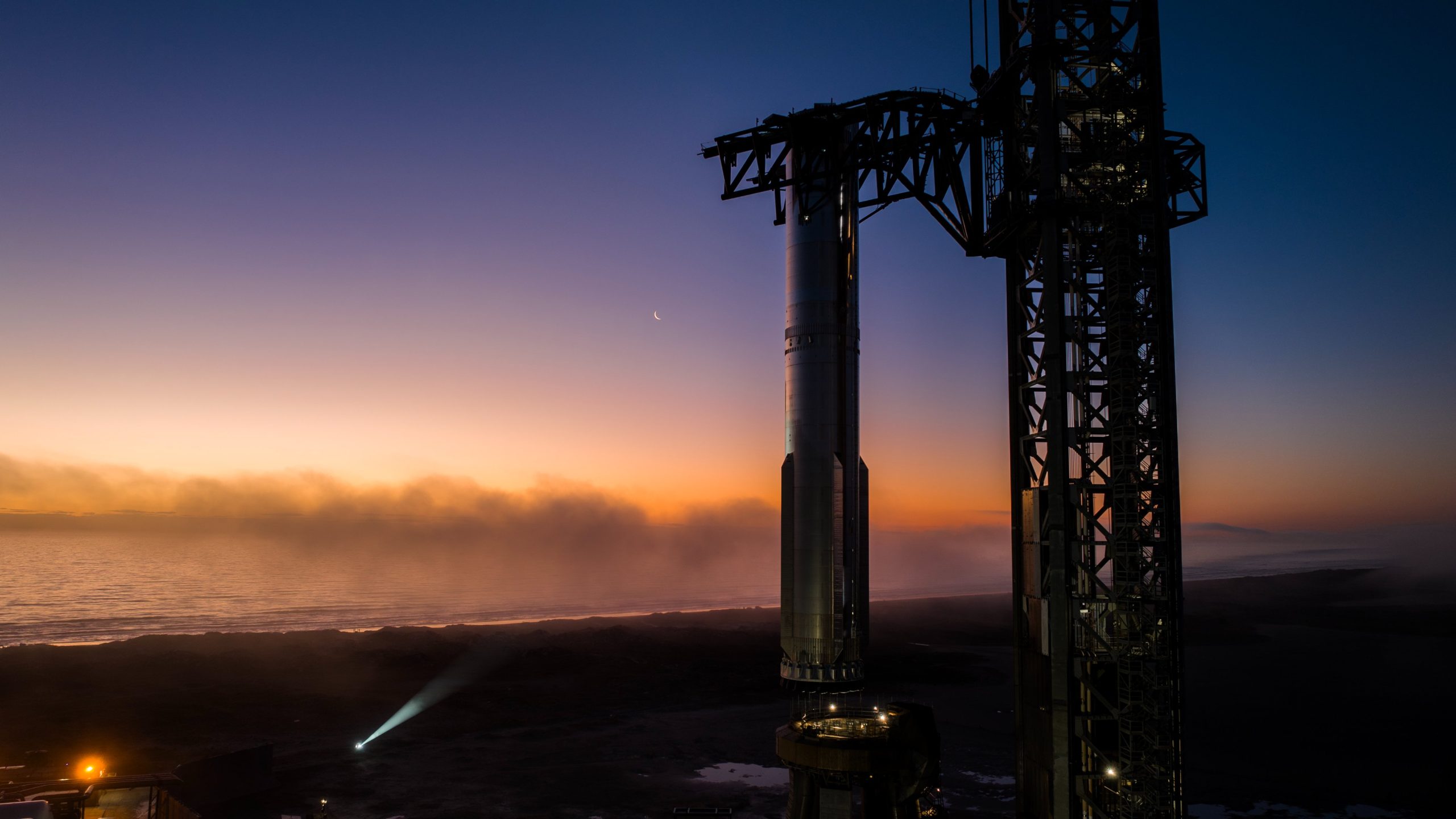
SpaceX has received environmental approval from the Federal Aviation Administration (FAA) to conduct up to 44 Starship-Super Heavy launches per year from Kennedy Space Center Launch Complex 39A in Florida.
The decision allows the company to proceed with plans tied to its next-generation launch system and future satellite deployments.
The FAA’s environmental review covers up to 44 launches annually, along with 44 Super Heavy booster landings and 44 upper-stage landings. The approval concludes the agency’s public comment period and outlines required mitigation measures related to noise, emissions, wildlife, and airspace management.
Construction of Starship infrastructure at Launch Complex 39A is nearing completion. The site, previously used for Apollo and space shuttle missions, is transitioning to support Starship operations, as noted in a Florida Today report.
If fully deployed across Kennedy Space Center and nearby Cape Canaveral Space Force Station, Starship activity on the Space Coast could exceed 120 launches annually, excluding tests. Separately, the U.S. Air Force has authorized repurposing Space Launch Complex 37 for potential additional Starship activity, pending further FAA airspace analysis.
The approval supports SpaceX’s long-term strategy, which includes deploying a large constellation of satellites intended to power space-based artificial intelligence data infrastructure. The company has previously indicated that expanded Starship capacity will be central to that effort.
The FAA review identified likely impacts from increased noise, nitrogen oxide emissions, and temporary airspace closures. Commercial flights may experience periodic delays during launch windows. The agency, however, determined these effects would be intermittent and manageable through scheduling, public notification, and worker safety protocols.
Wildlife protections are required under the approval, Florida Today noted. These include lighting controls to protect sea turtles, seasonal monitoring of scrub jays and beach mice, and restrictions on offshore landings to avoid coral reefs and right whale critical habitat. Recovery vessels must also carry trained observers to prevent collisions with protected marine species.
Elon Musk
Texas township wants The Boring Company to build it a Loop system
The township’s board unanimously approved an application to The Boring Company’s “Tunnel Vision Challenge.”
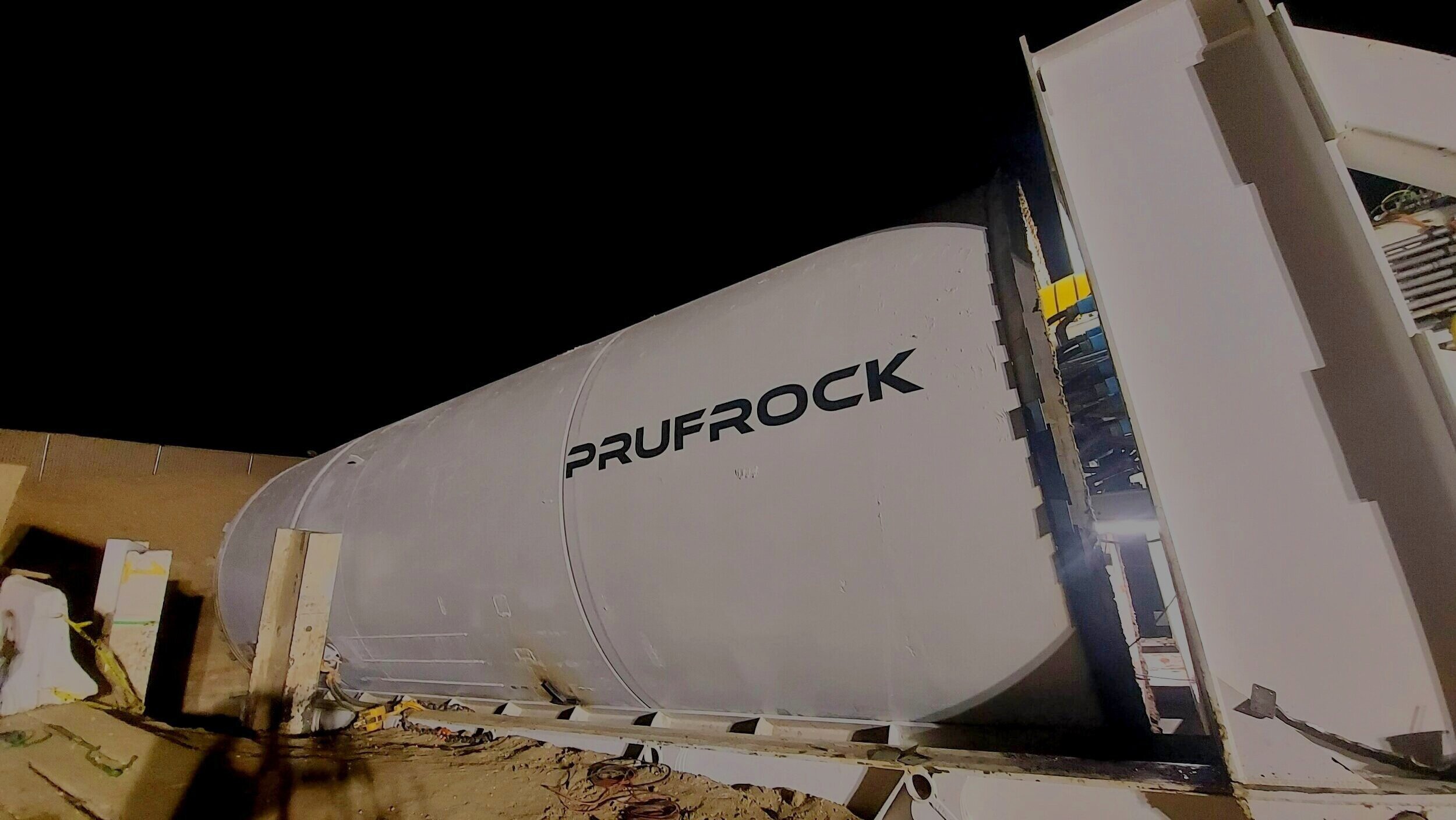
The Woodlands Township, Texas, has formally entered The Boring Company’s tunneling sweepstakes.
The township’s board unanimously approved an application to The Boring Company’s “Tunnel Vision Challenge,” which offers up to one mile of tunnel construction at no cost to a selected community.
The Woodlands’ proposal, dubbed “The Current,” features two parallel 12-foot-diameter tunnels beneath the Town Center corridor near The Waterway. Teslas would shuttle passengers between Waterway Square, Cynthia Woods Mitchell Pavilion, Town Green Park and nearby hotels during concerts and large-scale events, as noted in a Chron report.
Township officials framed the tunnel as a solution for the township’s traffic congestion issues. The Pavilion alone hosts more than 60 shows each year and can accommodate crowds of up to 16,500, often straining Lake Robbins Drive and surrounding intersections.
“We know we have traffic impacts and pedestrian movement challenges, especially in the Town Center area,” Chris Nunes, chief operating officer of The Woodlands Township, stated during the meeting.
“The Current” mirrors the Loop system operating beneath the Las Vegas Convention Center, where Tesla vehicles transport passengers through underground tunnels between venues and resorts.
The Boring Company issued its request for proposals (RFP) in mid-January, inviting cities and districts to pitch local uses for its tunneling technology. The Woodlands must submit its application by Feb. 23, though no timeline has been provided for when a winning community will be announced.
Nunes confirmed that the board has authorized a submission for “The Current’s” proposal, though he emphasized that the project is still in its preliminary stages.
“The Woodlands Township Board of Directors has authorized staff to submit an application to The Boring Company, which has issued an RFP for communities interested in leveraging their technology to address community challenges,” he said in a statement.
“The Board believes that an underground tunnel would provide a safe and efficient means to transport people to and from various high-use community amenities in our Town Center.”
News
Tesla Model Y wins 2026 Drive Car of the Year award in Australia
The Model Y is already Australia’s best-selling EV in 2025 and the tenth best-selling vehicle overall.
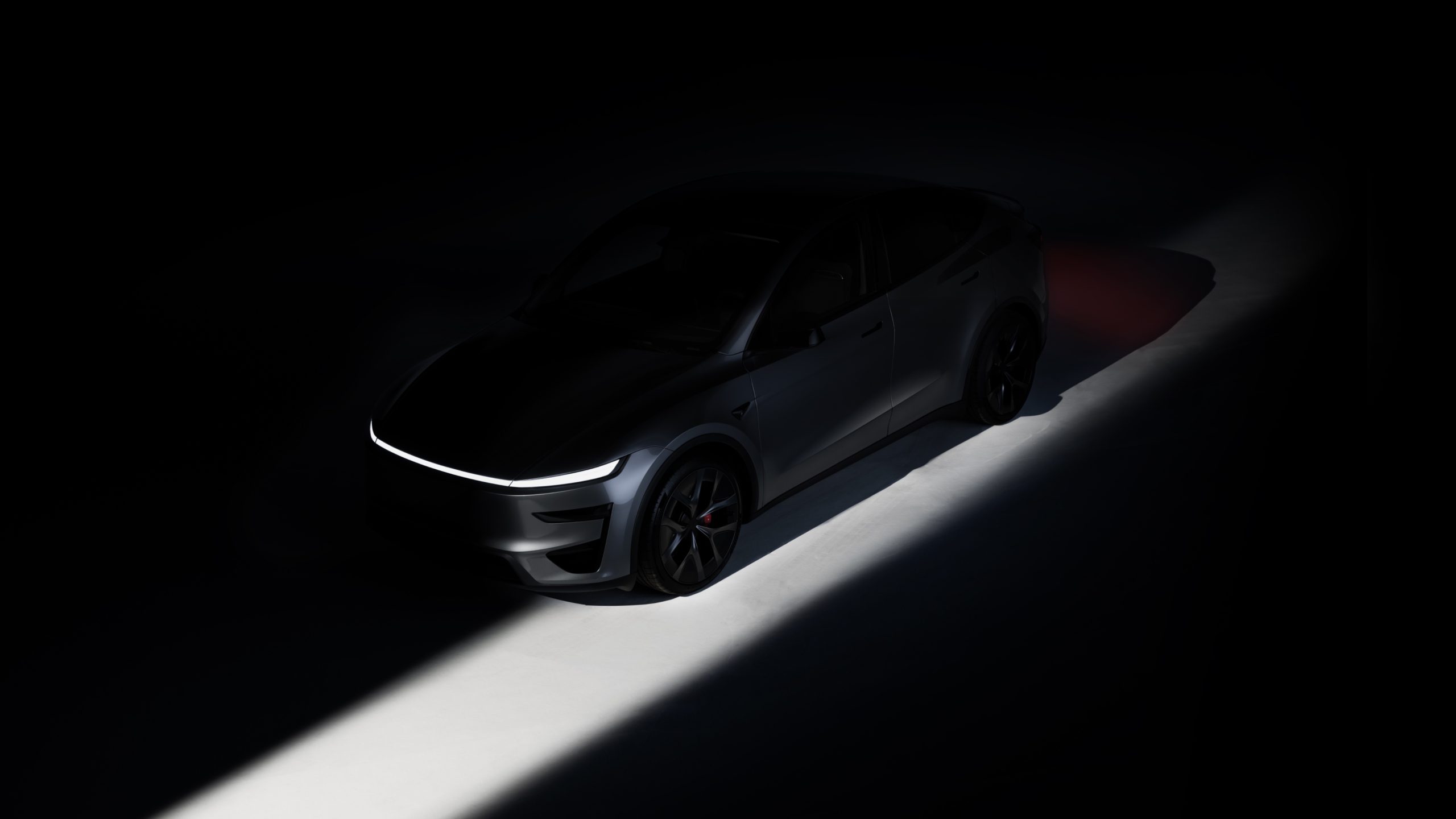
The Tesla Model Y has been named 2026 Drive Car of the Year overall winner, taking the top honor after being judged as the vehicle that “moves the game forward the most for Australian new car buyers.”
The Model Y is already Australia’s best-selling EV in 2025 and the tenth best-selling vehicle overall, but the vehicle’s Juniper update strengthened its case with new ownership benefits and expanded software capability.
Drive’s overall award compares category winners and looks at which model most significantly advances the local new car market. In 2026, judges pointed to the Model Y’s five-year warranty and the availability of Full Self-Driving (Supervised) as a monthly subscription as key differentiators.
Priced from AU$58,900 before on-road costs, the all-electric crossover SUV offers a lot of value compared to similarly sized petrol and hybrid rivals. The ability to access Tesla’s Supercharger network across Australia also reduces friction for buyers moving to EV ownership.
Owners can add FSD (Supervised) for AU$149 per month. While it still requires driver oversight, the system expands the vehicle’s advanced driver-assistance capabilities and reflects Tesla’s software-first approach.
“The default choice for a reason. The Tesla Model Y makes the transition to electric both effortless and rewarding,” Drive wrote.
The 2025 Model Y facelift also sharpened the vehicle’s exterior, highlighted by a distinctive rear light bar that gives the crossover SUV a more modern road presence.
Drive described the Model Y as a benchmark for combining practicality, efficiency and technology at an accessible price point. With eligibility for federal Fringe Benefit Tax exemptions through novated leasing, its value proposition has improved for numerous buyers.
For 2026, the Model Y’s combination of range efficiency, charging access and software capability proved decisive. Ultimately, the award all but cements the Model Y’s position as one of the most influential vehicles in Australia’s evolving new-car market today.








